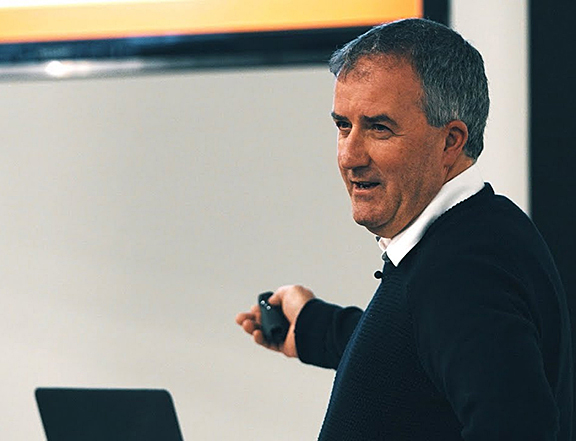The Clot Thickens
Dr. Malcolm Kendrick has just released his latest book…The Clot Thickens and its another must read. His prior books… The Cholesterol Con and Statin Nation both laid out in detail the many failings of the cholesterol causes heart disease hypothesis and the sustained efforts of the pharmaceutical industry to make you believe that statins make a real difference in heart disease. Unfortunately most doctors and health care providers have drunk the kool aid and still believe that cholesterol is a major factor in heart disease and that everyone should be on a statin. I have a very hard time convincing even my own Nurse Practitioners to stop looking at the guidelines and start looking at the data. It’s hard to go right when everyone else is going left.
The Cholesterol Con and Statin Nation both laid out in detail the many failings of the cholesterol causes heart disease hypothesis and the sustained efforts of the pharmaceutical industry to make you believe that statins make a real difference in heart disease. Unfortunately most doctors and health care providers have drunk the kool aid and still believe that cholesterol is a major factor in heart disease and that everyone should be on a statin. I have a very hard time convincing even my own Nurse Practitioners to stop looking at the guidelines and start looking at the data. It’s hard to go right when everyone else is going left.
In this, his latest book, Dr. Kendrick reviews these issues but goes into much more depth about the true causes of heart disease…inflammation (and its many causes) and the delicate balance between bleeding and clotting. He gets right to the bottom line in reviewing what interactions really change life expectancy. The evidence shows that by sunbathing you can gain up to a 10 years increase in lifespan. Just going outside, spending time in the sunlight which is simple, free, and enjoyable. On the other hand, 40 years of statins will give you the lifespan expectancy gain of just under a month… that’s right…3 days extra for every 5 years of taking a statin. So, take a statin for 40 years to gain just under a month of life expectancy or do some sunbathing and gain 10 years! Does this seem like a hard choice to you?
What about shortening life expectancy? Of course smoking leads the list. Smoking takes at least 10 years off your life expectancy and that’s pretty well accepted. What’s not accepted or well known is that taking proton pump inhibitors (prilosec, omeprazole, aciphex etc. ) causes on average a reduction of 2 years in life span! The mechanism of action is that the PPIs have an adverse cardiovascular effect via a reduction in nitrous oxide production. Dr. Kendrik points to a data mining exercise examining records from 2.9 million patients who were on proton pump inhibitors…they were associated with a 1.16 fold risk of having a heart attack and a 2 fold increase risk of cardiovascular mortality. That’s a doubling of cardiovascular mortality by taking a Prilosec or other drug chronically. So one of the most popular drugs in the world has clearly and repeatedly been shown to increase your risk of dying…what did your doctor say about that?

Dr. Malcolm Kendrick
So his suggestions as to how to keep cardiovascular diseases at bay include focusing on the items that have the biggest effects. Data in the United Kingdom from 3,878,256 patients analyzed over 10 years and machine learning was used to evaluate cardiovascular risk prediction. The top conditions related to CVD risk factors were:
- COPD / smoking
- Steroid prescription
- Age
- Severe mental illness
- South Asian ethnicity
- Prescription of immunosuppressant
- Socioeconomic status quintile number 3
- Socioeconomic status quintile number 4
- Chronic kidney disease
- Socioeconomic status quintile number 2
Diabetes and hypertension did not make the top 10! Socioeconomic status quintiles refer to a patient’s status economically. This was based on a massive computing analysis of many patients but doesn’t prove causation.
Lower socioeconomic status equals more stress and Dr. Kendrick points to loads of data both clinically and biochemically wherein stress is a major risk factor for heart disease. Is severe mental illness associated with heart disease because most of those patients smoke or is it because most of those patients are chronically stressed out?
When you look at it, severe mental illness, steroid prescription and immunosuppressant prescription all work in the same function affecting the hypothalamic-pituitary-adrenal axis with resultant insulin resistance. Stress does the same thing. It’s not just some new wave mumbo-jumbo…there are direct physical, chemical, and hormonal pathways linking stress to health consequences.
Where did LDL (what your cardiologist calls the “bad” cholesterol) fall on the list of associations with heart disease? It ranked 46 out of 48.
Yet another proof that LDL cholesterol was not a significant risk factor for heart disease. Okay, this study was done in the United Kingdom but it’s probably more relevant to heart disease in America than one done in China or Chile.
What were Dr. Kendrick’s personal recommendations regarding reducing heart disease risks? Of course he talks about smoking reduction, exercise, sun exposure (which increases nitric oxide production) sleep and stress management but he also talks about supplements…none of which he has any financial interests in. He particularly mentions terms of supplements; Vitamin D, Vitamin C, Potassium, Magnesium, L-Arginine, and
L- Citrulline. These are his recommendations to well people. If you have diagnosed heart disease he adds Chondroitin Sulfate (which acts to protect the glycocalyx), thiamine, CO Q-10 (since most of these patients are on statins) and viagra like drugs (which increase nitric oxide production).
He also favors considering aspirin and avoiding nonsteroidal drugs and proton pump inhibitors. If you have diabetes he recommends a low carb diet, short burst exercises, reducing alcohol and considering chelation therapy. This last one will be discussed in future columns.
I don’t know if it’s more important for you or your health care provider to read this book. Well, it may be too difficult for your health care provider to change how they think and how they practice but it’s not too late for you to improve your health. Look at the evidence in this book or his prior books, not at the recommendations of the guidelines because these guidelines have been hopelessly corrupted by Big Pharma. Don’t get me wrong…there is a time and place for pharmaceuticals but they must come after the basics of diet, exercise, sleep and stress and not be used as a substitute.
Until next month…get well and stay well.
JT BARRY MD











